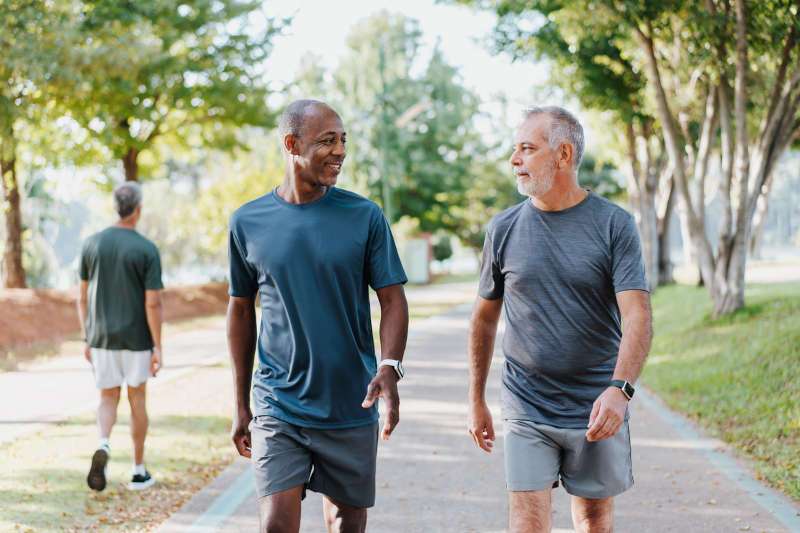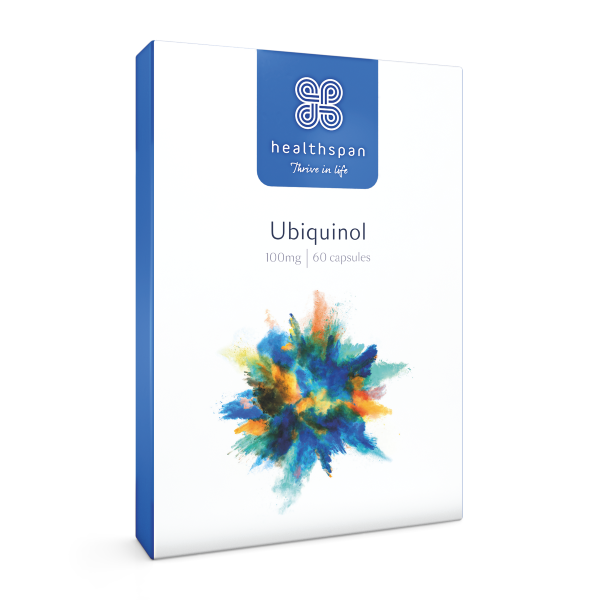The heart beats 115,000 times a day to keep you alive. GP, author and TV presenter Dr. Hilary Jones reveals all about this amazing organ and what you can do to keep it healthy.
🕒 5 min read
Your amazing heart
Your heart is about the size of your fist. It pumps 2,000 gallons of blood around your body every day, bringing life-dependent oxygen and nutrients to every cell while removing carbon dioxide and waste products.
And we take it for granted. It works all by itself without us having to do anything. It speeds up when we exercise or become emotional, it slows down when we rest or sleep. It does what is needed, usually without complaint.
What the heart does
The heart is made up of two sides separated by a thin muscular wall. Two main coronary arteries supply it with oxygen. There are two smaller upper chambers, called the atria, and two lower larger chambers, called the ventricles.
The right side of the heart pumps deoxygenated blood to the aerated lungs, and from there the oxygen-rich blood is returned to the left side of the heart, from where it is forcibly circulated around the body to give it energy and life. Four sturdy valves between the various chambers ensure the blood only flows one way.
The impetus to trigger each heartbeat comes from a built-in electrical conducting system; a bundle of nerve tissue that serves as our own natural pacemaker. This is vital, as if the heart stops for more than three minutes, it's game over.
Why is heart health important?
A healthy heart is not one that will be affected by coronary artery disease, angina or heart attack. It is not one whose function will be impaired by or produce high blood pressure, which significantly increases the risk of a stroke.
None of us wants to suffer chest pain, breathlessness, debilitating fatigue, palpitations, fainting episodes or vascular dementia, but these are all symptoms of a heart that has become sick; a heart we may not have taken care of sufficiently.
Heart disease remains the world's biggest killer, but we can help prevent it by adopting some simple lifestyle measures.

Diet, exercise and reducing stress all have important parts to play in improving heart health.
How to help your heart
A healthy heart is within our gift. Here are the five things you should do to keep it in top condition.
Exercise
Our heart is a muscle that never rests, and like all muscles it needs to be exercised. We should all take a minimum of 150 minutes of moderate-intensity activity per week, or 75 minutes of vigorous intensity activity if we are already active.
This needn't be a chore. Exercise can be anything you find fun, such as swimming, cycling or dancing; anything that raises the heart rate and makes us out of puff. Strength, balance and flexibility exercises are also important.
Enjoy a healthy diet
Enjoy each of the main five food groups in the right proportions. Five portions of fruit and vegetables, seven of starchy carbohydrate, two or three of protein, three of dairy or alternatives and one or two of oils and spreads.
Too much saturated fat and unhealthy processed food contributes to high cholesterol levels – a major driver of hardening of the arteries, which is the underlying pathological process in heart attacks, angina and peripheral vascular disease.
Remember that a healthy diet is not an imposition; you can still enjoy fabulous, varied, highly palatable meals and treats and look after your heart at the same time.
Supplements and nutrition
Along with a healthy diet, you could consider supplements such as omega 3 fatty acids EPA and DHA, which support eye and brain as well as heart health, and plant sterols, which are proven to lower cholesterol levels.
Coenzyme Q10 (CoQ10), resveratrol, grape seed extract and proanthocyanidins are all cardioprotective antioxidants, and magnesium can steady the heart rate and help control blood pressure.

Ubiquinol (CoQ10)
High-absorption form of coenzyme Q10 with vitamin B1 to support your heart health and energy metabolism
- 100mg ubiquinol, the most absorbable form of coenzyme Q10
- Coenzyme Q10 is needed for energy production in cells
- Vitamin B1 contributes to metabolism and nervous system function
Chill out
A little bit of stress is no bad thing. It drives us, keeps us motivated and helps us rise to a challenge. It's adrenaline-based and gives us a rush and a feeling of satisfaction when the job is done.
But too much stress and tension is a potential killer. When things get on top of us we feel apprehensive, anxious and irritable. We perform badly, blame others and become snappy. We cannot sleep. Our heart rate, blood pressure and cholesterol levels all go through the roof, despite there being no physiological need.
So try to de-stress. Take time out. Make time in your diary for yourself. Meditate, reflect and think positively. Take your watch off. Turn your phone off. Spend time with family and friends. Nobody ever died wishing they had spent more time at the office!
Book a checkup
One in four adults in the UK has high blood pressure. The condition rarely causes symptoms, so many people do not realise they even have it. For this reason, it's important to get checked, and this can be done by your GP, practice nurse, pharmacist or by yourself at home.
Untreated, high blood pressure can cause serious problems including heart attacks and strokes, but it is eminently treatable through exercise, having less salt in your diet, losing weight, avoiding stress and, if necessary, taking supplements or medication.
It's also important to check cholesterol and blood sugar levels. High levels of either can shorten lives. A fasting blood test can determine whether lifestyle changes, supplements, or medication are required.








